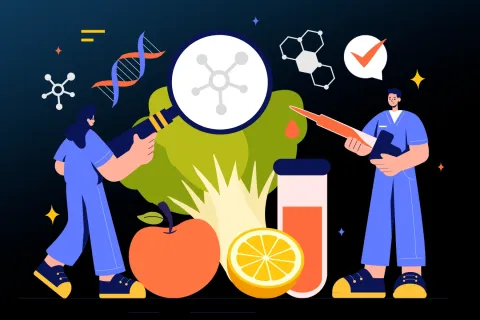
Peru’s Food and Nutrition Security Law, also known as Law No. 31315, marks a significant legislative milestone aimed at bolstering food security and nutritional well-being across the country. This law encompasses various facets of food safety, access to nutritious food, and public health. In this blog, we shall explore the key components of Peru’s Food and Nutrition Security Law and examine its implications for manufacturers and distributors operating within the Peruvian food industry.
Key Provisions of the Law
At the heart of Peru’s Food and Nutrition Security Law lie several provisions designed to address critical issues related to food security and nutrition. Here are some of the key provisions:
- Food Security Goals: The law outlines these specific goals – ensuring the availability of food, access to safe and nutritious food, ensuring adequate food intake, and the reduction of anaemia and obesity.
- Genetically Modified Organisms (GMO) Moratorium Law: Peru has reinforced its moratorium on GMOs for the next fifteen (15) years, emphasizing the preservation of agro-biodiversity and sovereignty amidst major challenges related to food security and climate change.
- Food Safety and Nutrition: Emphasizing the paramount importance of food safety and nutrition, the law sets forth specific standards and regulations to ensure that food products meet stringent safety and nutritional criteria.
- Social Food Programs: Peru has implemented various social food programs that target vulnerable populations, aiming to provide safe and nutritious food to those in need.
- Indigenous Food Security: Acknowledging the unique challenges faced by indigenous communities, the law seeks to promote policies that enhance their access to safe and nutritious food.
- Public Policies on Food Security: In an effort to align all levels of governance, the Peruvian government has prioritized the promotion of food security and nutrition as part of its overarching public policies.
Recent Amendments and Implications
Recent amendments to Peru’s Food and Nutrition Security Law carry significant implications for businesses operating in the food industry. The amendments and implications are elucidated below:
- Complying with the GMO Moratorium Law: The extension of the GMO moratorium law underscores the need for food manufacturers and distributors to ensure compliance by sourcing non-GMO ingredients and adapting to supply chains accordingly.
- Assuring Food Safety and Nutrition: Since the law sets specific goals for food security and nutrition, companies must align their products with the standards, which in turn necessitate potential adjustments to formulations and ingredient sourcing.
- Food Security for Indigenous Communities: Food businesses operating in areas inhabited by indigenous communities, in places like Loreto, need to consider the impact of their operations on local food security and environmental sustainability.
- Aligning with Social Food Programs: Companies should explore opportunities to align their products with social food programs, thereby contributing to efforts aimed at addressing food insecurity and malnutrition among vulnerable populations.
Navigating Implementation Challenges
Peru’s Food and Nutrition Security Law establishes a robust framework for manufacturers and distributors to navigate several implementation challenges. Some of the common challenges include:
- Access to Healthy Food: Addressing barriers to accessing nutritious food for vulnerable populations necessitates innovative solutions and a commitment to building safer and more sustainable food systems.
- Market Dynamics: Adapting to fluctuating market dynamics while meeting Regulatory standards and consumer demands presents ongoing challenges for vendors and distributors alike.
- Regulatory Compliance: Striving for compliance with nutritional warnings and other regulations calls for meticulous attention to detail and robust systems for monitoring and enforcement.
- Trade Regulations: Understanding and adhering to import regulations and standards is essential for businesses engaged in international trade, particularly in the food and agricultural sectors.
- Environmental Impact: Reducing the environmental footprint of operations is imperative for supporting sustainable food systems and mitigating adverse effects on food security and environmental degradation.
To summarize, Peru’s Food and Nutrition Security Law represents a crucial advancement in tackling significant issues related to food security and nutrition. While businesses operating in the food and dietary supplement sector encounter obstacles in complying with regulations, partnering with Freyr’s Regulatory experts offers a comprehensive solution. Through an exhaustive understanding of the law’s requirements, continuous monitoring of updates, and proactive management of implementation challenges, stakeholders can actively contribute to fostering a more sustainable food system. Freyr enables businesses to navigate Regulatory complexities effectively and facilitates the successful launch of food and dietary supplements in Peru. Contact Freyr today!









